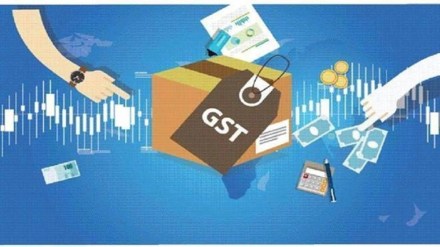MSME stakeholders in the country have urged for adopting a single home state PPOB (principal place of business) model in Goods and Services Tax (GST) regulations. This will enhance operational flexibility for sellers, streamline MSMEs’ expansion through e-commerce, safeguard state GST revenue, and maintain transparent audit trails, said experts including a group of members of Parliament across parties, tax experts, MSME industry associations, and online sellers on Friday in a roundtable discussion organised by MSME representative body FISME.
Highlighting the GST-related concerns during the roundtable, MSMEs selling via e-commerce noted the obligation to secure PPOB registrations in every state of operation which necessitates the need for physical offices, incurring working capital block and personnel costs.
MSMEs also underscored the challenge in updating GST certificates for additional premises as there is a two-four-week long waiting period for Additional Place of Business (APOB) registration, causing losses during sales. “An API-based APOB registration system by e-commerce operators for each seller’s GSTIN at warehouses will help reduce the time required for inventory placement and eliminate repeated verification for the same premises,” MSMEs suggested.
Additionally, the mandatory physical invoice in the digital age and the 1 per cent TCS (Tax Collected at Source) monitoring mechanism lead to working capital inefficiencies for e-commerce sellers, MSMEs said.
To address this, stakeholders called for permitting digital B2C transaction invoices to aid MSMEs in cost reduction and contributing to minimizing carbon footprint. They also suggested reducing the TCS rate to 0.1 per cent cumulatively to resolve the working capital issue for sellers and maintain continued visibility.
Anil Bhardwaj, Secretary General, FISME, said it is astonishing that while PM Narendra Modi is giving a lot of push and encouragement to digital and e-commerce trade to connect small entrepreneurs and artisans to wider markets through e-commerce, they encounter huge difficulties in complying with GST provisions.
“They are required to obtain multiple registrations in states where goods are stored, are asked to create a full set-up and wait for months for adding new places. Tax processes, harassment and intimidation by state tax authorities are pulling the clock back for ease of doing business,” said Bhardwaj.
MSMEs also asked for automation of the cash balance refund within T+3/5 days of filing of the application. T+ number of days refer to settlement dates that occur on a transaction date in addition to one, two, three or five days, respectively.
The sellers also urged for comprehensive training for tax officers, equipping them with a nuanced understanding of the new-age e-commerce business model.
Addressing MSMEs and other stakeholders, Rajendra Agrawal, Member of Parliament, Meerut (UP), said, “Any issues discussed, including the hurdles encountered by MSME sellers, will be shared with the relevant ministry and officials for resolution. The PM’s vision of Atmanirbhar Bharat cannot be achieved without the support of the MSME sector. We urge MSMEs to present their case, enabling us to advocate on their behalf in the Parliament and prompt the government to consider and address their concerns.”
